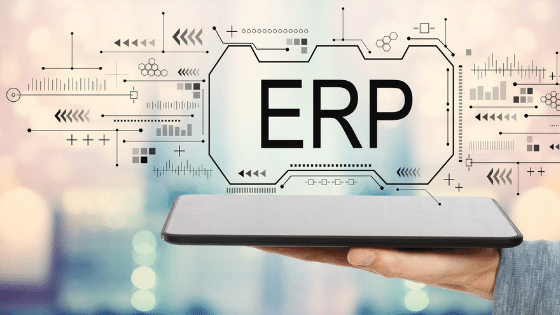Cloud vs On-Premises: Are You Putting Your Business at Risk?

As a business grows, so should its software and data security. ERP software can add a line of protection to your defenses by securing information, records, and processes. But deciphering whether a cloud-based system or an on-premises system is more secure can be confusing. As more businesses move to cloud-based ERP systems, it’s helpful to do a self-assessment to decide what’s best for your business.
The key difference between cloud-based and on-premises ERP systems is where the system is installed. With cloud-based ERP implementation, the ERP vendor hosts a business’ information and stores the software in a data center owned and secured by the ERP vendor or a third-party host. On-premises ERP is installed on-site and requires the owner to purchase everything related to software and licensing, as well as the physical infrastructure, in order to secure the data. ERP system security risks vary because they are based on how well the business maintains upgrades, patches, employee access, and other cybersecurity measures.
Cloud-based ERP systems include built-in firewalls and automated security, meaning ERP implementation security risks are low. A cloud-based ERP system provides solid application, network, and infrastructure security as well as sound privacy practices and enhanced safety for stored customer data. It also promises immediate incident response by automatically identifying out-of-the-ordinary events and responding appropriately becoming larger problems.
One advantage on-premises ERP systems offer is the opportunity to have an on-site ERP specialist who is familiar with your specific business. Although the expense to hire falls on the business itself, having an ERP specialist available at all times is invaluable. Another advantage is shelter from internet-related threats offered by an on-premises ERP installation. No internet connection is necessary for an on-premises ERP system because it’s connected to the company’s local network, making it easier to observe company-approved credentials. However, extra measures, such as having a VPN, need to be taken if the systems and data are being accessed from remote locations. An inherent risk to this format is that the company is then reliant on its firewall. A cloud-based ERP implementation mitigates this risk by providing firewall segmentation. Cloud-based ERP provides firewall segmentation more quickly than a business can usually do for itself. Maintaining firewalls can be complicated and costly, but the budget and size of your business can dictate if it’s a reasonable purchase.
A major advantage of cloud-based ERP systems is the ability to respond to denial-of-service attacks. These attacks are meant to shut down a machine or network by flooding the target with information that triggers a crash, making it inaccessible to its intended users. On-premises ERP systems are vulnerable to cyber-attacks because they are not usually equipped with built-in security functions to handle these assaults, relying instead on the company’s firewall for protection from off-site attacks.
Distributed and synchronized data centers around the globe maintained by cloud-based ERP vendors provide a natural defense. It is difficult for cyberattackers to pinpoint exact destinations because signals are being bounced around from different global data centers simultaneously. The cloud-based ERP provider maintains dedicated teams and equipment to specifically respond to denial-of-service attacks quickly and at scale.
A cloud-based ERP implementation automatically and consistently backs up data. The data can be distributed across multiple servers in several heavily secured geographic locations, making it difficult for cybercriminal groups to locate a particular company’s data for a targeted attack. If a catastrophe happens, recovery is possible.
Every business owner should consider if cloud-based ERP or on-premises addresses the ERP system security risks they face. If you’d like to learn more about which ERP solution makes the most sense for your business, give our team a call at 412-562-9660 or email info@decision.com.
Similar Blogs

Decision Resources Featured on Crunchbase

Chips, drugs, and steel — how to prepare for Trump tariffs





